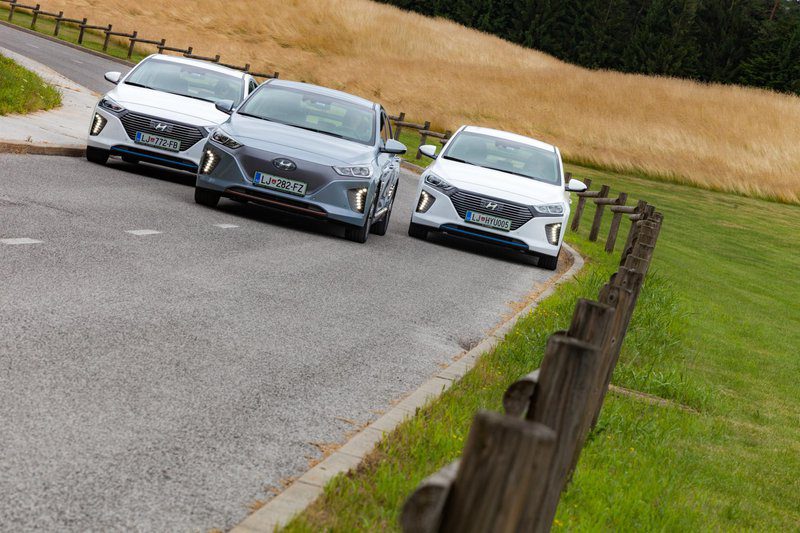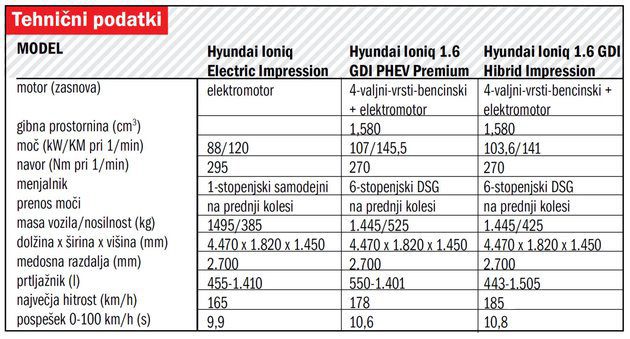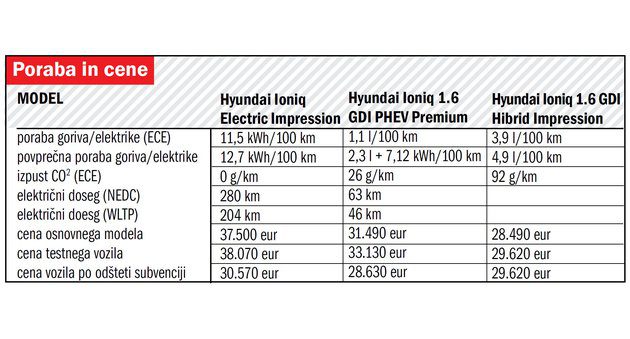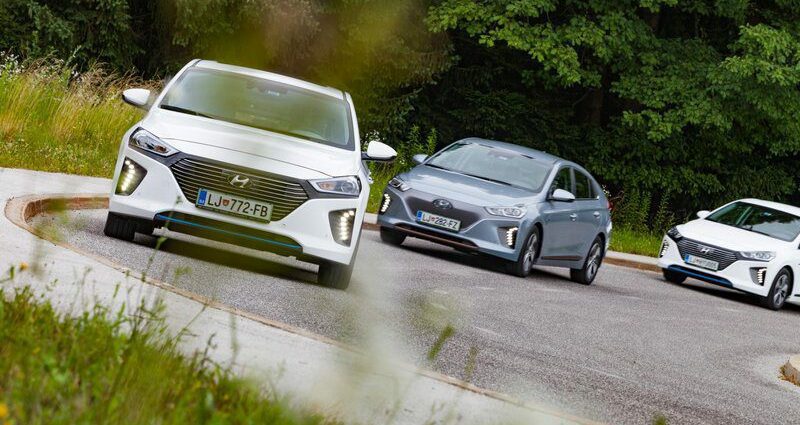
Comparison test: Hyundai Ioniq hybrid, plug-in hybrid and electric vehicle
This will be one of the main themes and challenges for automakers in the future. Namely, they will have to adapt to the demands of market conditions and, just as important, in cities. Many cities around the world are already introducing bans on the use of vehicles with conventional engines, and such restrictions are expected to increase in the future.
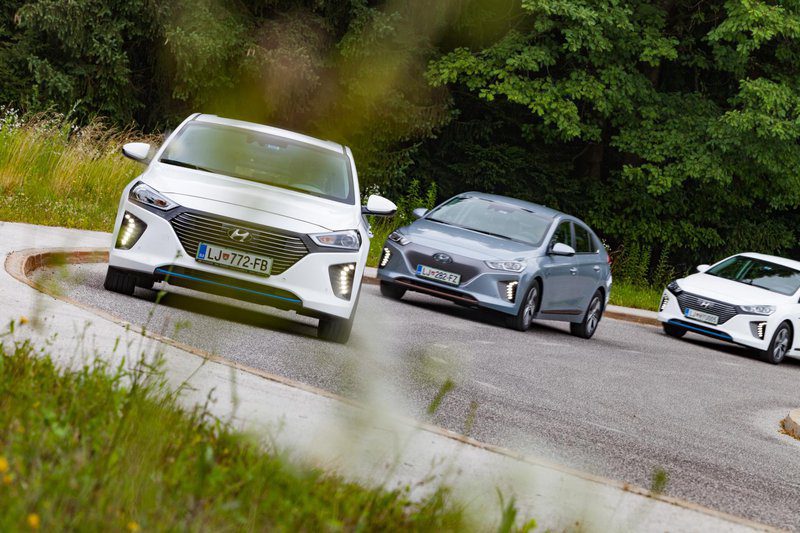
Some car manufacturers are already actively tackling the above problems and are introducing various alternative transmission options that are themselves not clean enough and less harmful to the environment than conventional engines. Today, we already know three main alternatives to classic internal combustion engines, especially diesel ones: classic hybrids, plug-in hybrids and pure electric cars. While the concept for the latter is clear – it is one or more electric motors that power vehicles – the differences between classic and plug-in hybrids are less known. Classic hybrids are cars equipped with a classic engine and an electric motor. Its operation is provided by a battery that is charged while driving, when the electric motor acts as an electric generator when the speed decreases. The plug-in hybrid on the other side of the battery can be charged in the same way as a classic hybrid, but at the same time it can be charged by plugging it into the mains, whether it's a regular household outlet or one of the public charging points. Plug-in hybrid batteries are much more powerful than conventional hybrids, and plug-in hybrids can only be driven electrically over long distances, typically several tens of kilometers, and at speeds suitable for off-road driving.
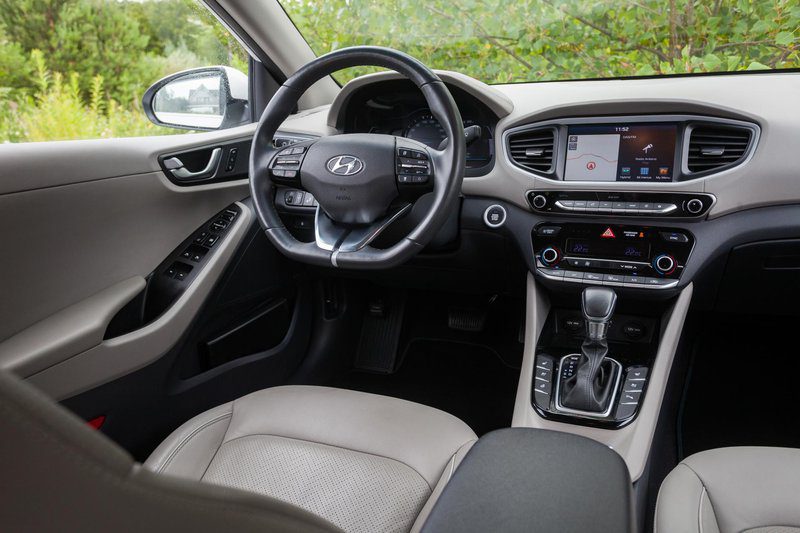
In the previous issue of the Auto magazine, we combined gasoline, diesel, classic hybrid and electric vehicles. The results of the comparison were obvious: electricity today is an acceptable (even affordable) choice, and of the four authors of the comparison, only one chose the classic gasoline.
But last time we missed what was probably the most useful version at the moment, that is, a plug-in hybrid, and at the same time, the cars were not completely comparable with each other, since they were different models from different manufacturers. So this time we did everything differently: one car in three eco-friendly versions.
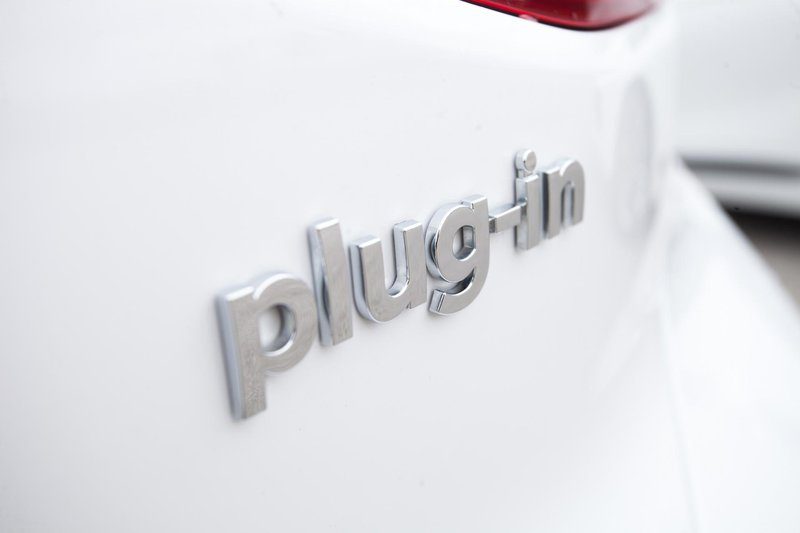
Hyundai is currently the only automaker in the world to offer all three forms of alternative powertrains in one model, the Ioniq five-door sedan. It can be equipped with a classic hybrid that offers the best energy efficiency in its class. It can be equipped with a plug-in hybrid that provides up to 50 kilometers of autonomy with the electric motor alone. The third option, however, is still a real electric drive. And be careful! With an electric Hyundai Ioniq, you can drive 280 kilometers without recharging. This distance is enough for many people for everyday needs.
As before, we drove the trio on a test lap, which differs from our classic standard lap by a greater proportion of the track. The reason is, of course, the same as before: we wanted to put the cars in a less comfortable position for their powertrains in order to get as realistic results as possible. And, we must admit, we were slightly surprised.
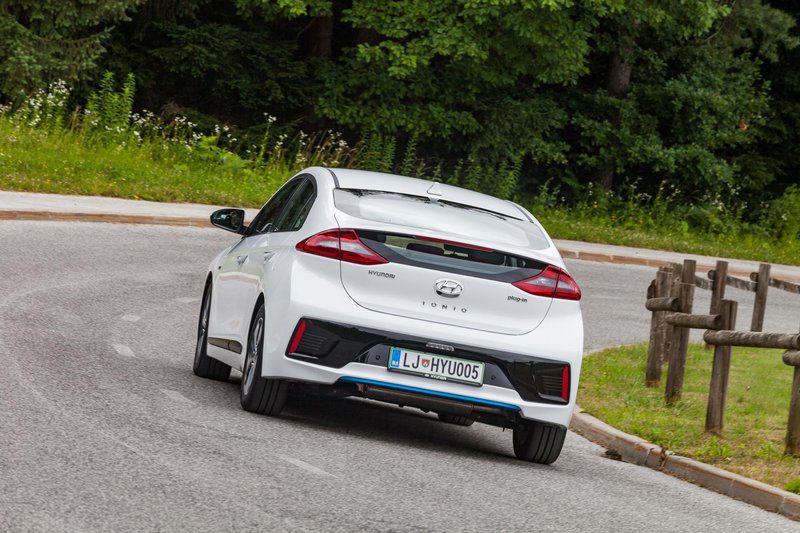
Everyday logic says that if you are one of those who spends a lot of time on the highway, the classic hybrid is probably the best choice. The plug-in hybrid, on the other hand, is suitable for those who combine commuter driving with intense city driving. Classic EVs are at their best in city centres, where the possibilities for car charging are almost limitless and at the same time the need for clean energy sources is great, but their reach is already suitable for longer trips if you want. use charging stations regularly and a properly planned route.
And since the electric Ioniq isn't one of the longest-ranging EVs, we expected it to be even more convincing. Despite quite a lot of kilometers of track (at a real speed of 130 kilometers per hour), it turned out that it would be so easy to drive 220 kilometers - this is enough for almost all the needs of a modern driver. And yet the final cost of a kilometer, despite the highest price among the three, is lower than that of a hybrid.
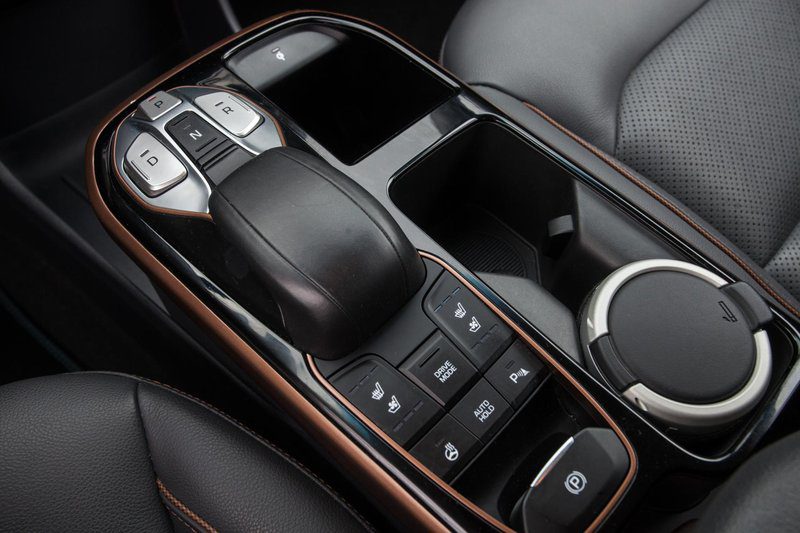
In terms of comfort and cost to drive or user, the plug-in hybrid is at the top. You can easily drive up to 50 kilometers on electricity (especially in the city and suburbs, the highway is more within reach here than with the all-electric Ionique), but at the same time, the fact that there are still about 100 hybrids (when the battery capacity drops to 15 percent, the Ioniq plug-in hybrid is in operation equal to the classic hybrid) kilometers. And since it's subsidized, it's even cheaper than the hybrid at the time of purchase. In short: there are almost no downsides. And at the same time, in fact, it becomes clear: at least in this society, even the classic hybrid is actually already outdated and unnecessary.
Sasha Kapetanovich
Whereas in the previous comparison test we compared different powertrains of urban toddlers that most of them can use as a second car at home, this time we have put together three different Ioniqs that, given their size and ease of use, are quite suitable for a first or the only car. house. Since I am an impulsive person and often decide first and then deal with the consequences, in the previous comparison I easily decided that the task of the “baby” at home would be performed by an electric car. In this case, when the car takes the brunt of family moves that are already full of logistics, planning and some stress before the trip, it would be completely unnecessary to think about how far to get to electricity and what to do when the lights come on. The plug-in hybrid is therefore the ideal choice here. During the week, you can do your normal activities on electricity, and on weekends, forget about all the calculations in your head that the electrical assembly of this Ioniq brings.
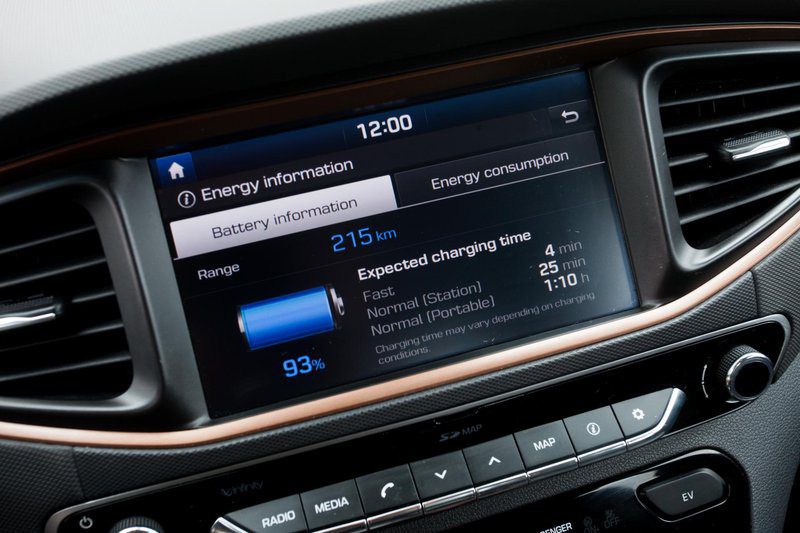
Tomaž Porekar
He must make a choice in favor of the "future", that is, a purely electric drive. However, the problem with me is that no one knows how to define this future and tell when it will actually come. The electric Ioniq seems to me to meet the needs of today's driver / owner, who drives 30-40 kilometers a day. If he can confirm with certainty that he will always charge his batteries with electricity overnight, his "future" has indeed come true. However, those who travel frequently on longer trips and expect to progress fairly quickly will have to wait for the future to materialize! So there are two left, one of which still has to fall off for my personal use. In fact, it is even more difficult here to really understand the thing correctly and make a decision. If buying a larger amount is not a problem for you, then the Ioniq PHEV is definitely the best choice. With the plug-in hybrid version, you get it all - a satisfying and reliable range as well as very modest daily transport costs. As you can see from our table, these costs are the lowest for this vehicle. After deducting the subsidy from the environmental fund, it is even the cheapest, but the difference between all three is very small.
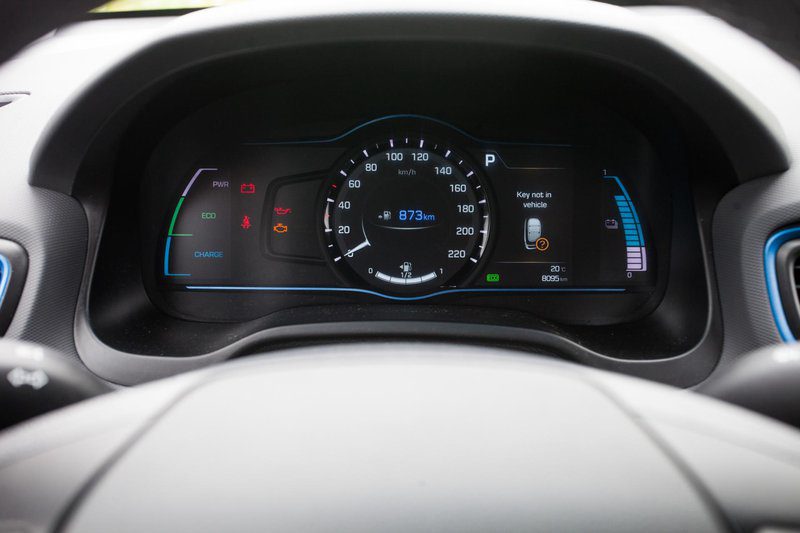
What about a conventional hybrid drive? In fact, almost nothing speaks in its favor: neither the price, nor the driving experience, nor the experience. So, at least for me, the choice is simple - a plug-in hybrid will be the most suitable. You can also plug it into an electric charger in front of the house as an electric one, and this will not be a big problem if you use electricity from a relatively small battery. What I liked the most was the electric range. Driving, at least most of the time, felt like a race to drive in such a way that there was enough electricity for as long as possible. Since I never do this with a regular petrol or diesel car, it is to be expected that over time the Ioniqu PHEV will also become a boring and less fuel efficient driver. However, it seems to me that my choice is also the best approximation to the promised "future" that is so predicted for us. With a stable, if not quite economical, fuel consumption of the Ioniq gasoline engine and daily consumption of electricity from a charged battery, we achieve what the greens expect from us. If we were to calculate the CO2 emissions of these cars, which are supposed to control the future, in a realistic way, i.e. by calculating all the energy consumed from the beginning of production to the end of their life, otherwise we would get different data. Above them, the Greens would have been surprised. But there is no need to open these dilemmas here...
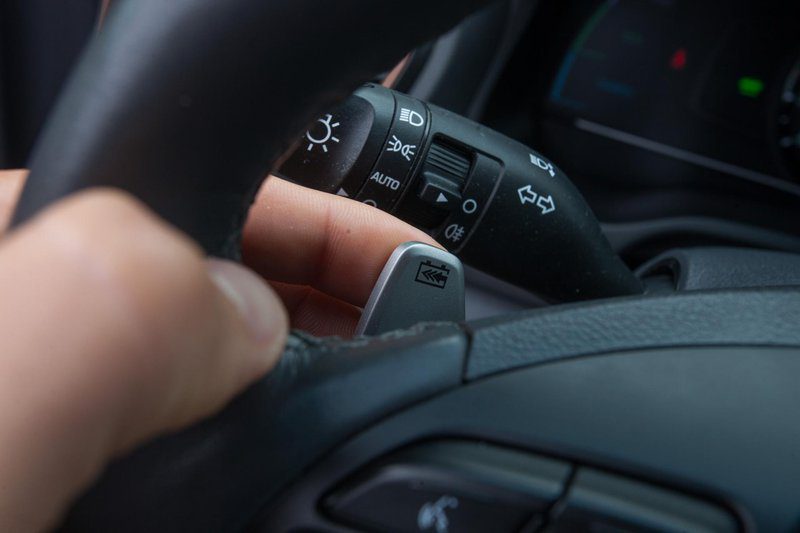
Sebastian Plevnyak
This time the test trio was really special. The peculiarity is that the design of the same car is available with three different drives, which does not allow you to complain about its shape. You know, green cars used to be more like sci-fi cars, but now green cars are pretty decent cars. But it's still hard for me to say that Ioniq appeals to me in terms of design. However, in the case of an electric car, this is more than optional. Namely, an electric car requires failures, such as charging care and route planning, and vice versa, the car must offer the owner at least a resemblance. At the same time, one should not lose sight of the fact that the infrastructure still leaves much to be desired. Not so much at public gas stations, but with the ability to charge in large residential areas. It is more than impossible to charge an electric car in the block. On the other hand, the jump from a regular car to an electric car is quite large. Therefore, in the case of Ioniq, I am quite inclined towards the hybrid version - easy to use, maintenance-free and with a little practice, its consumption can be interestingly low. It is true that for many a hybrid is an old story, but on the other hand, for many it can be an interesting start. On the other hand, if you live in a house and have an electrical outlet close at hand (or a car outlet) - then you can skip the hybrid and go straight to the plug-in hybrid.
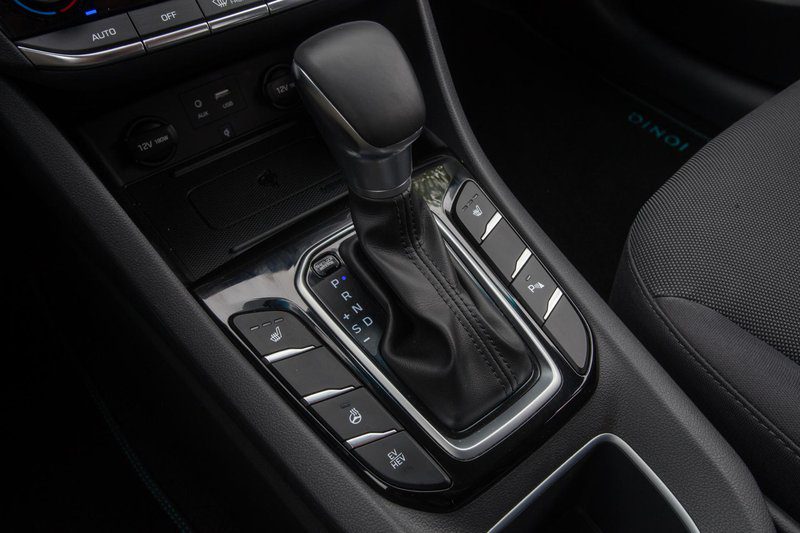
Dusan Lukic
Although its form is not close to me, Ioniq always inspires me. Extremely efficient or economical, complete, useful. All three versions. But what would you actually choose for yourself? Hyundai has an electric Kono. With a 60 kilowatt-hour battery and crossover design, this is actually the perfect car, as I wrote for the Opel Ampera a while ago. But that was not with us and will not be, and Kona will arrive in a month or two. However, it is true that it will be much more expensive than the Ioniq, and if the limit is, say, 30 thousand euros, then the Kona is out of the question ... Back to the Ioniq: definitely not a hybrid. The plug-in hybrid is the best choice (both in terms of price and ease of use). Therefore, the decision will only depend on whether to buy such a car for the first car in the family (i.e. the one that is used every day, in the city, on business, to work and back ...) or the second car (i.e. E. which is used less often, but on the other hand should also provide longer routes). For the former, it’s definitely the electric Ioniq, for the latter, it’s a plug-in hybrid. Everything is simple, right?
Read more:
Electric, Gasoline & Diesel Engines: Which Car Pays The Most For The Purchase?
Short test: Hyundai Ioniq Premium plug-in hybrid
Short test: Hyundai Ioniq EV Impression
Test: Hyundai Ioniq hibrid Impression
